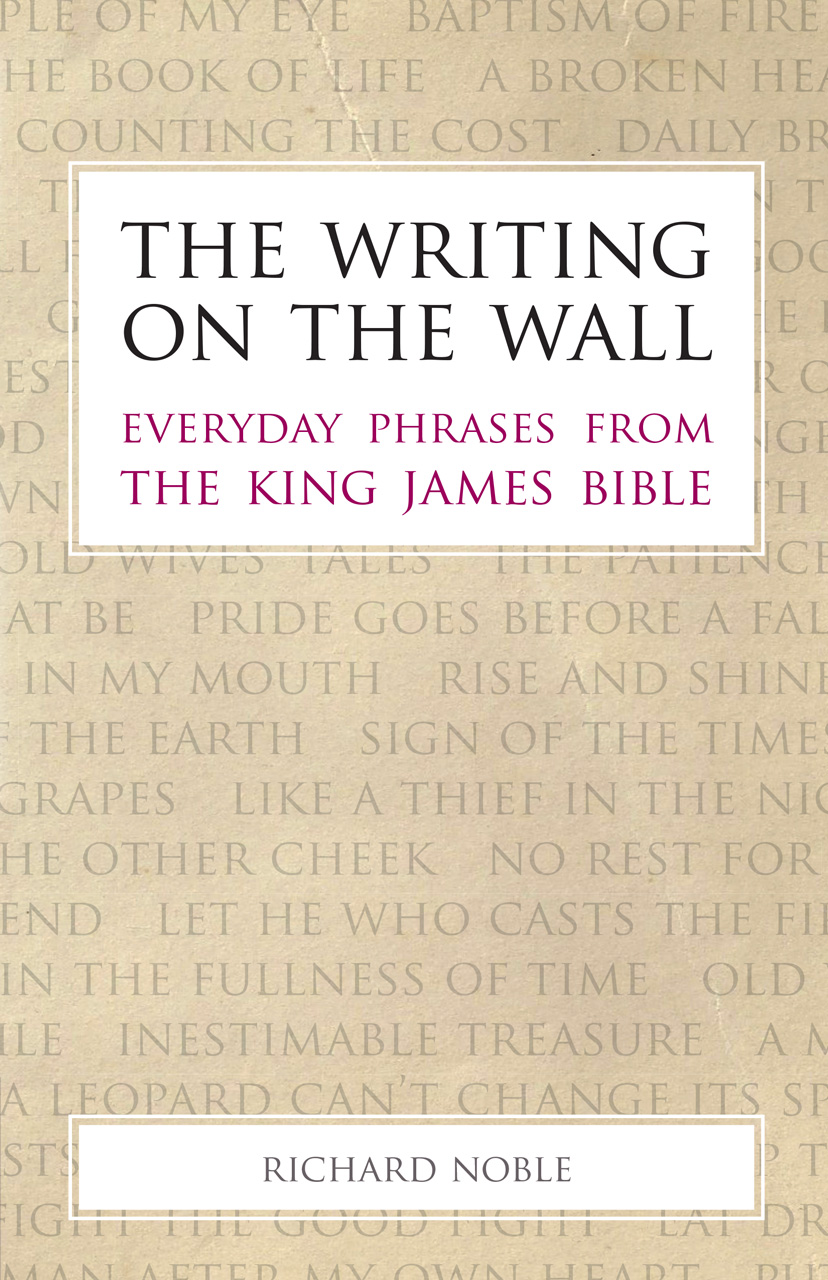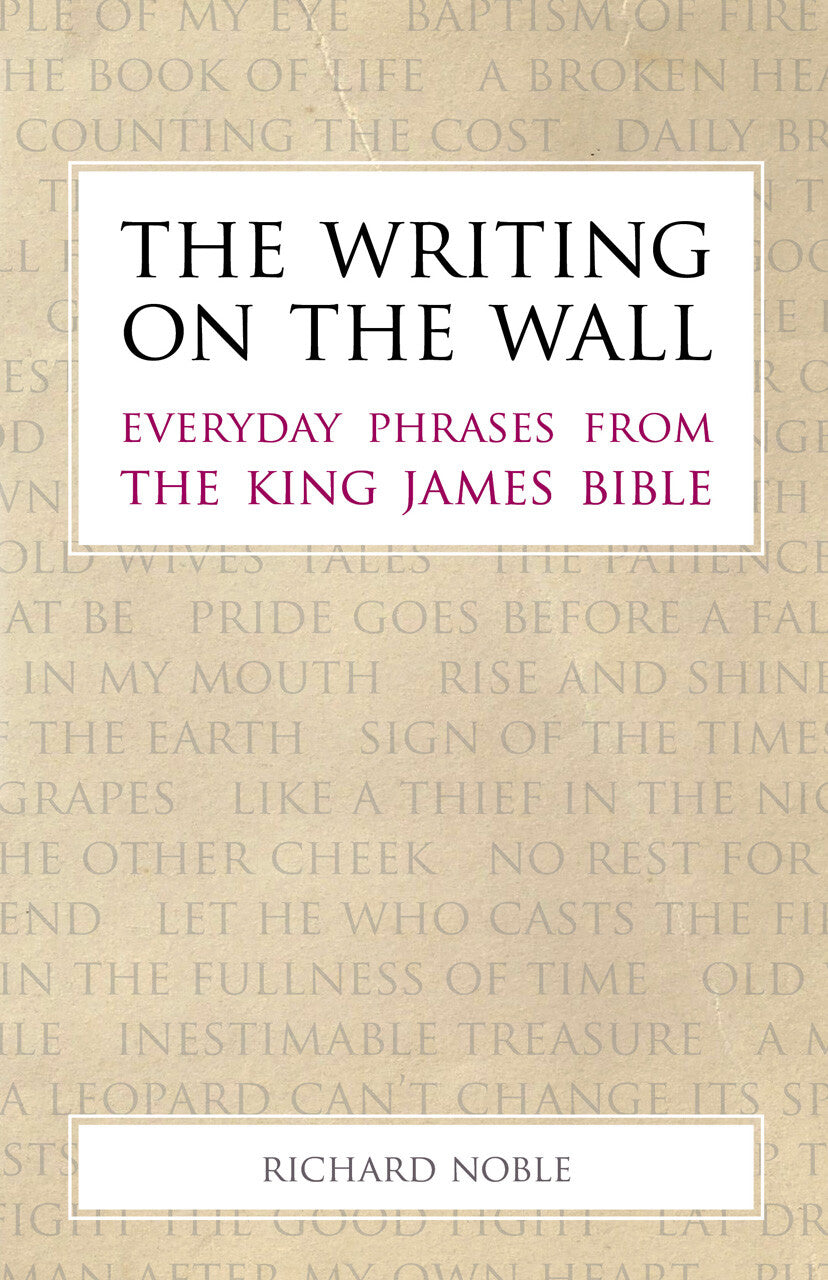 GUEST BLOG: With 40 Bible phrases for 40 days, The Writing on the Wall: Everyday Phrases from the King James Bible offers a fascinating alternative to the usual Lent books of Bible studies and reflections, as Richard Noble explains.
GUEST BLOG: With 40 Bible phrases for 40 days, The Writing on the Wall: Everyday Phrases from the King James Bible offers a fascinating alternative to the usual Lent books of Bible studies and reflections, as Richard Noble explains.
The book lists over 100 phrases, with over half coming from the Old Testament. Of these, 40 are selected as introductions to the 40 books, Genesis to Malachi. As well as giving a succinct introduction to each book as a starting point for a reflection on the book itself, the chapters are only a page or two long and include fascinating details about how the phrases are used, bringing the Old Testament into the context of today. Here a few extracts from some of the less commonly read books:
From Leviticus: ‘To be a scapegoat’—being made to bear the blame for others. “The concept of a scapegoat existed long before the emergence of monotheism and the theology of Atonement or Yom Kippur in Judaism. For Christians the means of Atonement, or being reunited with God, is the restorative Cross of Jesus Christ. The notion of a sense of guilt being transferred onto others has become so widespread in modern secular society that use of the word has become very common in speech and media titles. It is even used as a verb, ‘scapegoating’, as in the singling out of political ringleaders…”
From 1 Chronicles: ‘Fall on one’s sword’—take the blame for a situation by resigning from a position of responsibility. “To fall on one’s sword can be viewed as honourable, cowardly, or desperate, and has thus become a favourite metaphor for journalists reporting resignations in today’s rough and tumble of politics and high profile news.”
From Ecclesiastes: ‘Fly in the ointment’—trifling cause that spoils something good. “The idiom originates in the pithy verse: ‘Dead flies cause the ointment of the apothecary to send forth a stinking savour: so doth a little folly him that is in reputation for wisdom and honour’ (10:1). The writer finds that, in life, reward or punishment and success or failure do not correspond with being wise or foolish and righteous or wicked. … This phrase is a good example of how a word-for-word translation from an ancient language can lead to a new idiom, its meaning becoming obscured over time. Today’s hygiene standards and sell-by dates ensure that ointments never become putrid.”
The Writing on the Wall also covers the New Testament books and the Intertestamental Period. It can provide ongoing interest as a resource for dipping into beyond Lent and long into the future. A reviewer on Amazon US wrote “This is the kind of book you could buy to read yourself, and then when you’ve finished, leave it lying around in a guest room or even a bathroom(!) for others to pick up and be fascinated by.”
Richard Noble is the author of The Writing on the Wall: Everyday Phrases from the King James Bible, a guidebook to this linguistic treasure-trove. Get your copy here.











